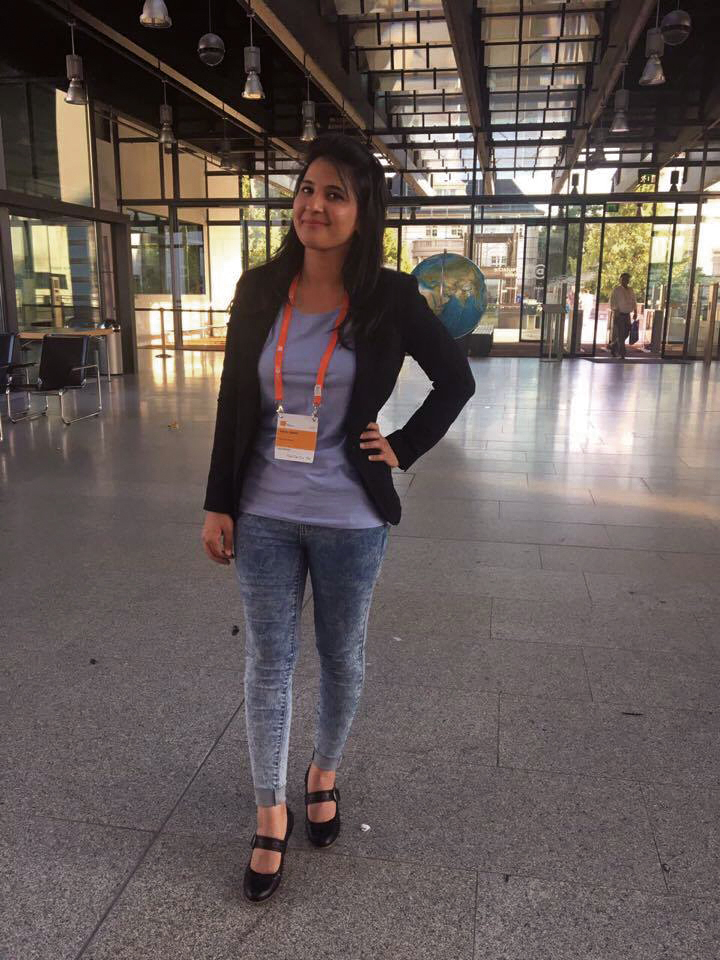:bsz international. From Pakistan to Germany: Aasma Jabeen studies International Humanitarian Aid in Bochum. We discussed the differences between female liberty and education in both countries and the recently published equality report.
7,604 kilometres lie between Dera Ismail Khan/ Pakistan and Bochum; 7,604 kilometres Pakistani student Aasma Jabeen overcame to learn how to support her hometown in the northwest region of Pakistan. The former scholar of English Literature is now studying International Humanitarian Action in the framework of NOHA (Network on Humanitarian Action) in Bochum. 19 universities offer this subject, the RUB is the only German university.
After a flood in Pakistan 2010 she joined local humanitarian projects initiated by Pakistan Relief and participated training camps by organisations like the United Nations. She realised she “had to work for the people” in need, as the government didn’t supply basics like health care. The need to support and enhance the people’s situation finally lead her to Bochum: “Friends of mine recommended studying in Germany. […] I applied.” The former student of English Literature arrived in November 2016 in Bochum. Her course of education is exceptional compared to rural Pakistani standards. According to Aasma only 15 out of 1,000 girls offer her home village in the Khyber Pakhtunkhwa Province in the northwest study. The discrepancy in terms of educational possibilities between countryside and urban space is huge.
Societal differences
In a male-dominated society women are not allowed to decide whether they can work, or “worse”, go abroad out of educational reasons, Aasma explains. Opposite to that, Aasma experienced a personal freedom of choice here in Bochum: “Mentally, I feel relaxed. I stay in the library until 12 p.m.!” In her hometown women are not allowed wandering around in the evening hours all alone. If seen, judgement is inevitable. This static patriarchal society in rural areas can hardly be broken, as there is a lack of resources: The government is still failing to provide an access to education – especially for girls and women. A vicious circle for society and a dead end for many female Pakistanis, at least on the countryside. “The situation is better in the big cities of Pakistan”, says Aasma.
Gender equality
“German women are independent, well paid and well educated, compared to Pakistani women”, Aasma resumes. She is aware of the outcome of the second equality report of the Federal Government (for more: read above). Despite the inequality in terms of payment – gender pay gap – educational structures are important to Aasma: The government supports women, they can attend schools and universities. In Pakistan women living alone and working as a single mother are peculiar. Taking your child with you to work? Not even conceivable. Another point in the report is the gender care gap, a status quo criticised by the scientists working on the report. Women work twice as much in the household, nursing elder parents or children. A change is needed; a claim, which Aasma understands, but she does not know from Pakistan, where the whole socio-political situation differs. Often enough “one family member is earning money and is supporting nine persons in the family”. Women stay home, care for the house and the family and have no time for literacy. A change is needed. The situation is improving in the cities. There might be a ray of hope.
:Andrea Lorenz


0 comments